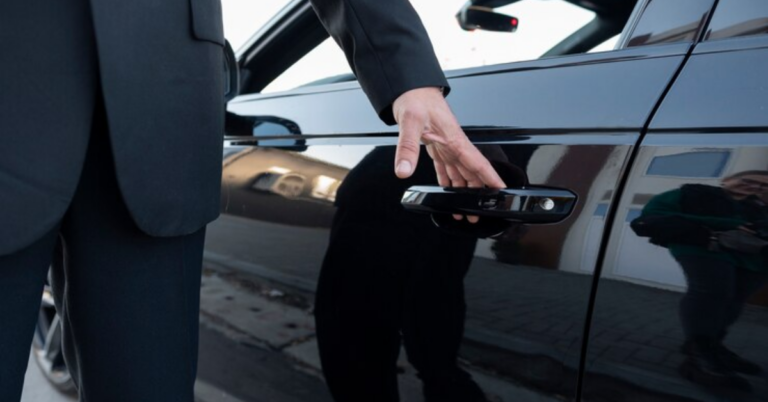Is Remote Online Notarization Secure?
Remote online notarization has rapidly gained popularity as individuals and businesses seek more convenient ways to authenticate documents without traveling to an office. At its core, this digital process eliminates many logistical hurdles traditionally handled by a Mobile Notary, allowing signers to connect with a commissioned official via live video. Yet as with any emerging technology, questions about privacy, identity theft, and data integrity inevitably arise. In this post, we’ll explore the security backbone of remote notarization, compare it to established offerings like Mobile Notary, Hospital Notary Service, and Jail Notary Service, and show how modern platforms deliver robust safeguards that rival—or even surpass—the protections of in‐person signings.
Many people still rely on specialized services such as Hospital Notary Service when they can’t leave a medical facility, or turn to Jail Notary Service for incarcerated clients. Remote notarization extends these on-site conveniences into the virtual realm. By leveraging encrypted video, certified recording, and third-party identity verification, RON platforms mitigate risks of impersonation or document tampering. Modern solutions comply with stringent federal and state regulations, ensuring each signature is bound to a verified individual, creating a tamper-evident audit trail that protects both signer and notary from fraud.
Traditional notarizations often involve walk-in clients or scheduled visits from a Jail Notary Service, where physical presence safeguards identity. Remote notarization replaces this in-person check by requiring signers to present government-issued IDs on camera, sometimes alongside secondary authentication such as knowledge-based questions or SMS codes. These multi-factor controls often exceed the verification rigor of brick-and-mortar notary services. Paired with continuous recording, they guard against misrepresentation, ensuring that each person signing is who they claim to be—even when they’re miles apart.
Emergency situations frequently call for Emergency Notary Services, where time is critical and resources limited. RON platforms mirror that urgency by offering near-instant access to a notary, 24/7, through secure web portals. Users simply upload the documents, initiate a video call, and complete the signing process within minutes—all while the system logs every interaction. The result is legally valid notarization that holds up under scrutiny, delivering the same enforceability as a standard in-person session but with far greater speed and flexibility.
The Mechanics of RON Platforms
Remote notarization platforms rely on several interconnected technologies to guarantee security. First, high-grade encryption (often AES-256 or stronger) protects video streams and document transfers. This prevents eavesdropping or man-in-the-middle attacks that could compromise sensitive personal data. Second, digital signatures and cryptographic seals bind the notary’s authority to the document’s electronic record, creating an unbroken chain of custody. Third, certified audit logs record timestamps, IP addresses, and session metadata—offering a detailed trail in case the notarization is ever challenged in court. Together, these measures shape a system as reliable as any Airport Notary Services setup, but without geographical constraints.
Besides encryption and audit trails, many platforms integrate biometric analysis—such as facial recognition—to match the live video feed against the ID provided. This adds another layer of defense against fraudulent signings, especially valuable in high-stakes transactions like real estate closings or loan signings. The technology flags mismatches, auto-terminates suspicious sessions, and alerts both parties when anomalies occur. When implemented correctly, these controls make remote online notarization at least as secure as traditional methods, ensuring peace of mind for signers and notaries alike.
Ensuring Trust and Safety in Remote Notarization
Verifying Signer Identity
One of the greatest security concerns in notarization involves confirming that the signer is indeed who they claim to be. RON platforms address this by combining government ID authentication with dynamic challenge questions drawn from public and proprietary data sources. During the session, the notary prompts the signer to hold their ID up to the camera, ensuring holograms and security features are visible. Automated tools then cross-verify expiration dates, photo matches, and document integrity. Many services also require knowledge-based authentication—asking for personal details that only the legitimate signer would know. By layering these checks, remote notarization significantly reduces impersonation risks, matching or surpassing on-site protocols.
Protecting Document Integrity
Beyond identity verification, RON platforms prioritize the integrity of the notarized document itself. Once signed, each page is affixed with a tamper-evident electronic seal that locks its content cryptographically. Any alteration—no matter how minor—breaks the seal, immediately alerting all parties and rendering the document invalid. Many providers also timestamp the seal via blockchain or trusted time-stamp authorities, adding an immutable record of when the notarization occurred. These technological safeguards eliminate concerns over backdated signatures or unauthorized edits, offering stronger guarantees than many traditional processes, which can be vulnerable to physical document fraud.
Meeting Legal and Regulatory Requirements
For remote notarization to be legally recognized, platforms must comply with state statutes, federal guidelines, and international treaties when applicable. In the U.S., the Revised Uniform Law on Notarial Acts (RULONA) and the Uniform Electronic Transactions Act (UETA) set the foundation for enforceable e-notarizations. Each state that permits RON enforces its own additional rules—covering acceptable credential services, record retention periods, and session recording requirements. Reputable providers maintain strict adherence to these regulations, store audit logs for the mandated time, and undergo periodic third-party audits to verify compliance. This rigorous oversight framework ensures remote notarizations achieve the same legal standing as traditional sessions conducted by a Mobile Notary, Hospital Notary Service, or Jail Notary Service.
Overcoming Security Misconceptions
Despite robust safeguards, some individuals remain wary of any online process involving personal documents. Common misconceptions include fears of data breaches, identity theft, or weak verification. In reality, many RON platforms meet or exceed enterprise-grade security standards used in banking and telemedicine. They employ continuous monitoring for suspicious activity, multi-factor authentication, and end-to-end encryption. Service providers also maintain cyber insurance to cover potential liabilities. By understanding these protections, organizations and private individuals can confidently adopt remote notarization, enjoying its convenience without compromising on security.
The Future of Notarial Security
As remote notarization continues to mature, we can expect even stronger security innovations. Upcoming trends include wider adoption of distributed ledger technologies for immutable audit trails, advanced biometric liveness detection, and integration with digital identity wallets. Together, these advancements will further fortify the notarization process against emerging threats. Meanwhile, in-person services like Mobile Notary, Hospital Notary Service, Jail Notary Service, Emergency Notary Services, and Airport Notary Services will coexist with RON, allowing clients to choose the most convenient method without sacrificing legal validity or security.
In conclusion, remote online notarization offers a secure, efficient, and legally sound alternative to traditional notarizations. By leveraging cutting-edge encryption, rigorous identity verification, and comprehensive audit trails, RON platforms address the same security concerns as in-person services—and in many cases, raise the bar even higher. Whether you’re arranging a last-minute signing at an airport, coordinating documents from a hospital room, or connecting from the comfort of your home, you can trust that remote notarization keeps your information and your transactions safe.







